Scholarly Editing is an open-access, peer-reviewed journal committed to the development and advancement of all aspects of textual and documentary editing, including the recovery of texts and artifacts that represent and celebrate the lives and contributions from and about Black, Latinx, and Indigenous peoples; Asian Americans and Pacific Islanders; women; LGBTQ+ individuals; and peoples and cultures of the Global South. In addition to projects that illustrate the traditional range of editorial methodologies and practices, we welcome those that feature rare or marginal texts, texts that dislodge the single-author model, oral histories and tales, community recovery, creative works of “re-memory,” and the decolonizing of artistic works, archives, records, and editions for the discoverability of racialized and underrepresented stories and cultural artifacts.
The editors are committed to amplifying the work of diverse voices. We particularly encourage contributions from marginalized, silenced, or overlooked groups. We welcome work in all disciplines—from new and established projects, individuals at any stage of their career, and those who engage in public history or otherwise seek to advance knowledge beyond the academy.
The content published in the journal includes essays, micro-editions, reviews of print and digital editions and of digital projects and tools that enhance recovery work, teaching materials, and transcripts of interviews and conversations. The journal’s eclectic, multidisciplinary approach makes it an invaluable resource for anyone interested in the theory, practice, and pedagogy of recovery and editing, including educators, students, researchers, scholars, historians, archivists, editors, information professionals, digital humanists, local genealogists, and community members.
Essays
Scholarly Editing publishes essays on decolonizing analyses and practices and on the theory and practice of recovering the voices and cultures of Black, Latinx, and Indigenous peoples; Asian Americans and Pacific Islanders, women, LGBTQ+ individuals, and the people and cultures of the Global South. Such contributions may also explore the digital tools and contexts that enhance this work.
Uncovering and Sustaining the Cultural Record
Editing primary sources for publication has extensive origins in multiple disciplines. We invite scholars, digital humanists, librarians, students, archivists, and educators, and community members from outside these groups to contribute brief essays (1,250-4,000 words) about their experiences of uncovering and sustaining the cultural record as a set of practices, as a field, or as an act of recovery of silenced voices. In issuing this invitation, we look forward to publishing a set of short essays that will demonstrate diversities of practice, perspective, and emphasis. Our goal is to explore capaciously the contexts of knowledge production as theorized by Roopika Risam in New Digital Worlds: Postcolonial Digital Humanities in Theory, Praxis, and Pedagogyy (2019). Central questions include “how projects are designed, how material in them is framed, how data in them is managed, and what forms of labor are being used to create them.”
Review Essays
Scholarly Editing reviews letterpress and digital editions, digital projects, and the digital tools that enhance recovery of, and expand access to, primary-source materials. In accordance with our Statement of Purpose, we review materials that amplify the work of diverse voices and celebrate the contributions of underrepresented and silenced communities. While we do not accept unsolicited reviews, we welcome proposals from readers who would like to serve as reviewers as well as recommendations of work that may be appropriate for review.
College and University Classroom Essays
We invite all explorations of the intersections between recovery and pedagogy at the university level. Potential areas of inquiry may include theoretical approaches to teaching scholarly editing and other forms of digital recovery, the use of primary source materials in the classroom and in public outreach programs, teaching with print editions and/or born digital projects, and training student members of editorial projects. Collaborative essays are welcome, including those that advance their argument through case studies and with materials such as assignments, course syllabi, and excerpts from students’ work (with appropriate permission).
Micro-Editions
Scholarly Editing is a home to sustainable small-scale editions of interesting and understudied texts. Such editions may range from a single document to 130 short documents or to two variants of a single text. We encourage those who wish to propose a micro-edition to consult the executive editorial team in advance of forwarding their proposals.
Voices and Perspectives: Interviews and Conversations
We publish transcripts of conversations and interviews with recovery practitioners. We invite those who wish to propose conversations and interviews to consult with the executive editorial team in advance of forwarding their proposals.
